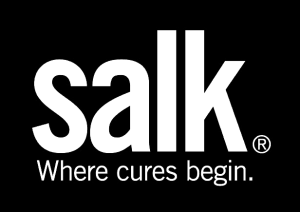Janelle Ayres is a professor in the NOMIS Center for Immunobiology and Microbial Pathogenesis, director of the Molecular and Systems Physiology Laboratory, a member of the Gene Expression Laboratory and holds the Helen McLoraine Developmental Chair at the Salk Institute for Biological Studies (La Jolla, US). She is leading the Harnessing Physiological Health to Treat Disease project.
Ayres received a BA in molecular and cell biology from the University of California, Berkeley (US) and a PhD in microbiology and immunology from Stanford University (US). She was a postdoctoral fellow at the University of California, Berkeley. She is the recipient of numerous awards and honors, including the I.L. Chaikoff Memorial Award from the University of California, Berkeley (2002), a predoctoral fellowship from the National Science Foundation (2004-2007), the Sidney Raffel Award from the Department of Microbiology and Immunology at Stanford University (2008), the Ruth L. Kirschstein National Research Service Award, a postdoctoral fellowship from the National Institutes of Health (2010-2013), the Searle Scholarship Award (2014), the Ray Thomas Edwards Foundation Career Development Award (2014), the Young Faculty Award from DARPA (2015), the Crohn’s and Colitis Foundation Senior Research Award, the Blavatnik National Award for Young Scientists (2018), and the National Institutes of Health Pioneer Award (2018).
Ayres is a molecular and systems physiologist who uses evolutionary theory and microbes to understand how all our physiological systems and our brain interact with each other to promote optimal health. She studies how our physiologies are regulated by microbes. She seeks to understand how the mechanisms by which microbes promote our health represent a relatively unexplored aspect of host-microbe interactions, which provides an opportunity to discover new, dynamic biological processes in health and disease. Her work has potential translational applications for treating a wide array of diseases — including infectious and inflammatory conditions — and to promote healthy aging. She has shown that giving mice dietary iron supplements enabled them to survive a normally lethal bacterial infection and resulted in later generations of those bacteria being less virulent, thereby eliminating the risk of future infections. She also revealed how bacteria in the gut regulate feeding behavior by manipulating the gut-brain axis and how gut microbes promote muscle mass by promoting interactions between the immune and endocrine systems.




